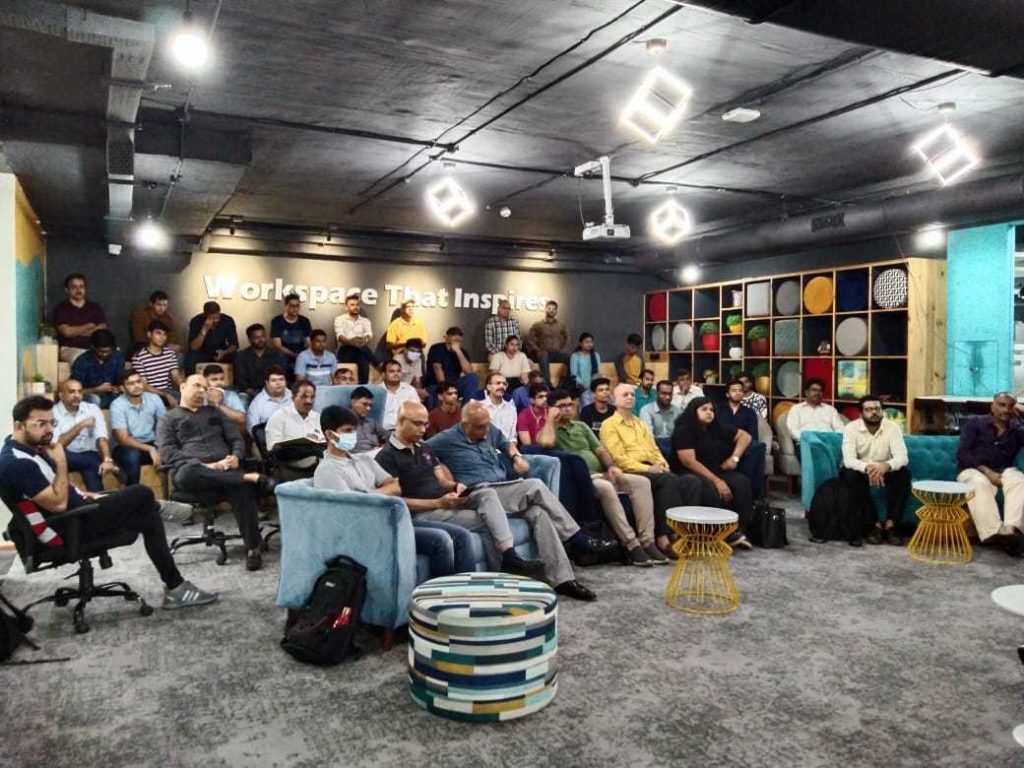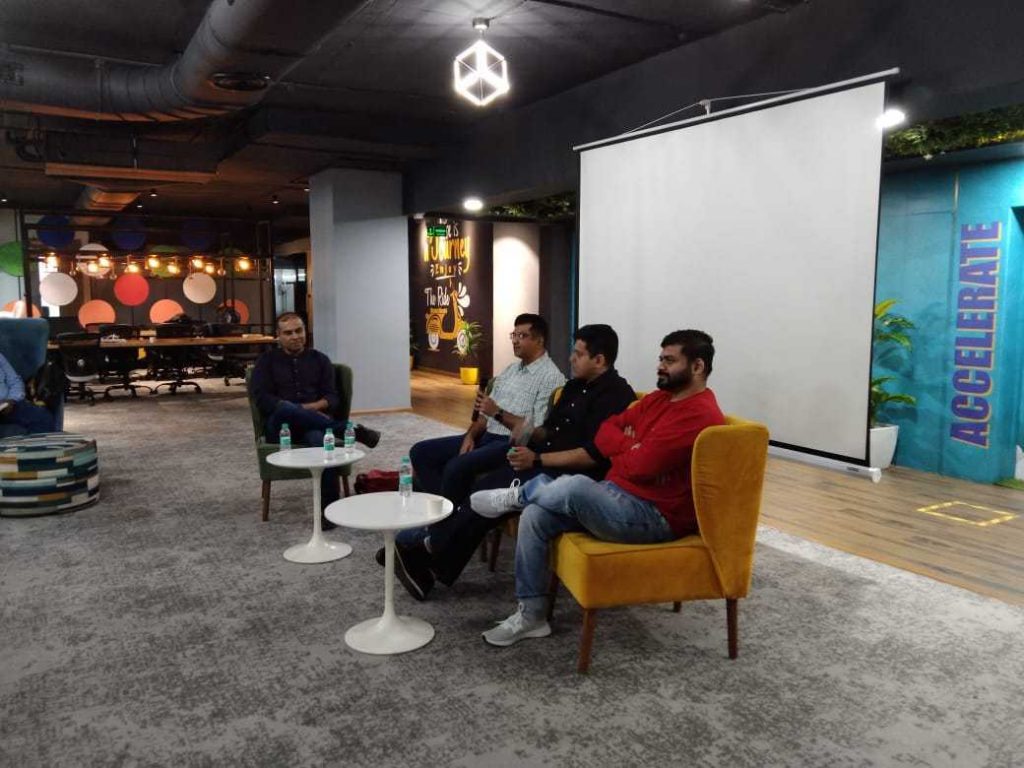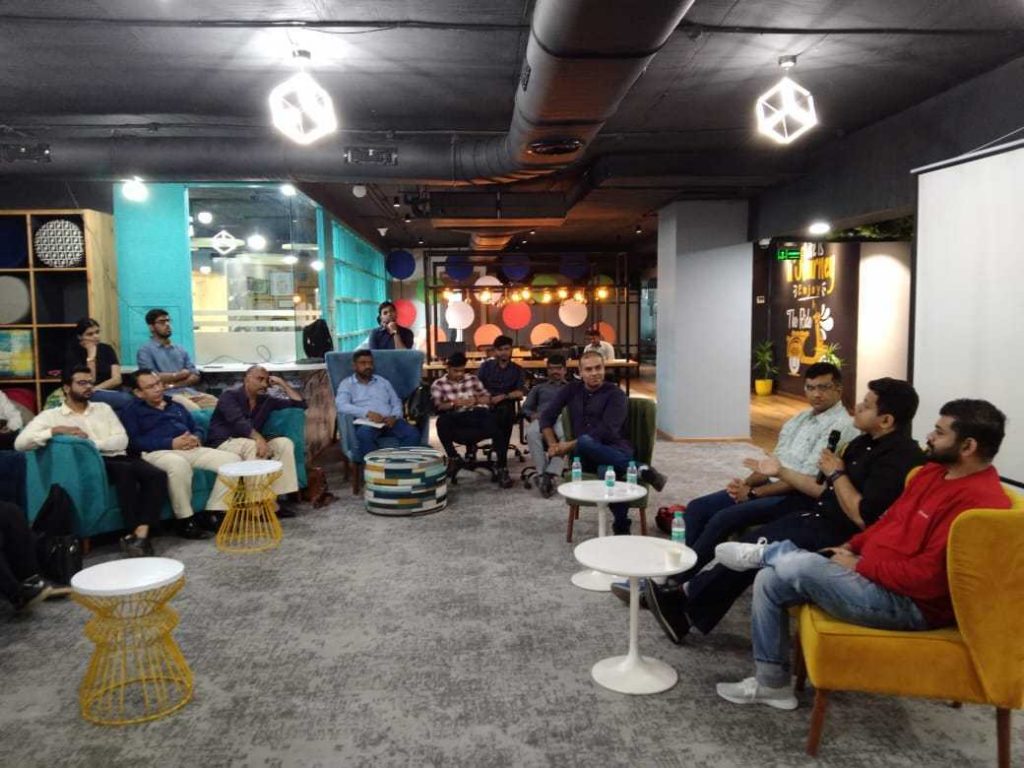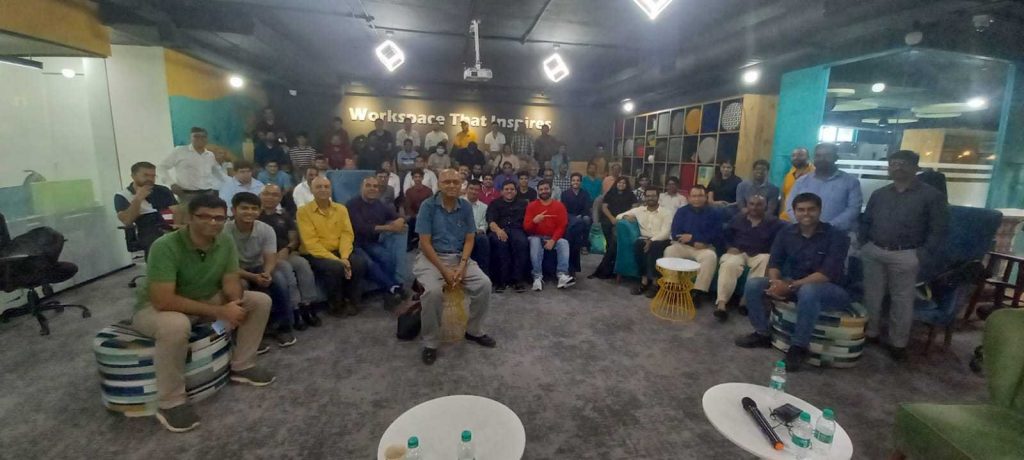DevX in Andheri hosted eChai’s event series on Business Valuation in association with IBGrid. Bhavin S Bhagat, co-founder of Indiabizforsale.com and IBGrid.com moderated the event and has summarised below the event takeaways.
It was refreshing to see such a diverse crowd on 3rd Sept, Saturday morning in Mumbai, we had participants from age group late teens to late sixties. There were some who were working on their business idea, some who are at growth stage and some looking to exit from their business that they had created decades earlier. eChai has done a massive job in helping entrepreneurs come together to learn from each others’ experiences and build it as a thriving community. Read more about the event below:
The topic was,
“Art of Business Valuation during fund-raising and M&A“
Like Hyderabad, here in Mumbai also we had some interesting mix of narratives.
Viral Rathod from Everstone Private Equity Group is an astute finance professional with deep expertise on business valuation as PE investor.
Mihir Karkare from Mirum is an entrepreneur who has gone through an entire cycle of starting a business, growing a business, selling a controlling stake of that business and then growing that joined entity massively in the last 5 years.
Udit Goenka from pitchground is a serial entrepreneur and an investor into early stage tech companies.
Viral shared that there are multiple valuation methods to consider while valuing a company like DCF, Price to Earnings, Price to Sales, Transaction multiples, PEG, etc. However, the whole exercise is an art rather than a science. As a PE investor, when they invest into a company, the whole exercise can take about 6 to 9 months. Whenever they consider a new investment, the first thing they look for is the sector’s growth outlook, the growth pattern of the company, the suitability of the management team and so on.
They meet them multiple times, visit facilities of the company, get a third party professional overview on this investment even valuation at times. Once things look promising, only then they get into valuation and structuring negotiation. There is always a big gap in valuation mismatch between both sides and they use the structuring mechanism to make that investment. For eg. If the company is seeking valuation of Rs. 1,000 Cr and if they feel that valuation should not be more than Rs. 600 Cr, the structuring would look like this upfront valuation of INR 600 Cr and if the company performs in 2 years to achieve certain milestones than valuation would be changed to Rs. 1000 Cr.; however, if the milestones are not met, the valuation would remain at INR 600 Cr only. Overall, he says that they are in the business of making money from the investment, even when they have a new fund (US$ 600M+) focusing on the Impact sector.
Mihir shared the importance of choosing the right investor or company who you merge with; his company was acquired by WPP group, world’s top communication company. He said that he could have shopped around for higher valuation but as founders they went ahead in their transaction knowing the reputation of WPP group of being fair in their acquisitions and in their integration process. Mihir candidly shared that they made more money from the earn out than the initial payment. The valuation they got was based on the profit multiples initially and then earned out on the basis of that as well as some other aspects such as their entity’s ranking in a good place to work.
Their company has grown massively in the value chain as well as in overall numbers, this allowed the founders to get more share from the upside they bring to the table. He also shared the importance of bringing advisors on board when the entrepreneurs are going or planning to go through a transaction, as for entrepreneurs such an event means all in and they can get emotional about it, however the advisor would look at the transaction dispassionately and help navigate through ups and downs in the transaction.
Udit shared very passionately the opportunity cost of not doing a transaction in a timely manner. He shared how the first two transactions allowed him to build enough capital, learnings and network to build pitchground which is growing massively. He said that the valuation he got for the first two transactions were reasonable 1X of revenue to 1.2X of revenue. He also shared that when you get money on the table (offer from the other side) it gives a good validation of the business you have built. He shared a wide range of tips on timing aspect of startup fundraising & exit, being always in selling made, building that network of super 0.1% of experts, bootstrapping, and more. Udit shared his sheer conviction of building Pitchground as a unicorn while bootstrapping which is a testament of his belief system on the basis of his previous exits.
Some key common questions which were asked to the panel are as below:
- How to value a pre-revenue company while raising a first round of investment?
- How do I value the goodwill for the company we built over 20 years and now when we are looking to sell?
- As an investor, which company would you prefer to invest in? A company with one product generating a good portion of revenue and a very high margin or a number of products with good profit margins?
- What equity to offer to an upcoming CTO?
Overall moderating this event has been so enriching to my learnings. Many folks appreciated the topic and the quality of sharing by the panel. We are looking forward to bringing this event to Ahmedabad and Bangalore next; obviously with eChai’s support.
The previous event on this topic was at T-Hub Hyderabad – read here.
In case if you are looking for a professional, unbiased valuation report for your business, look no further, check IBGrid.



